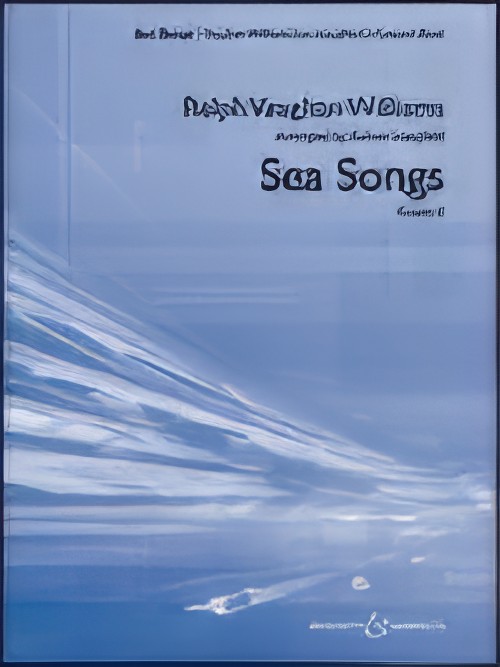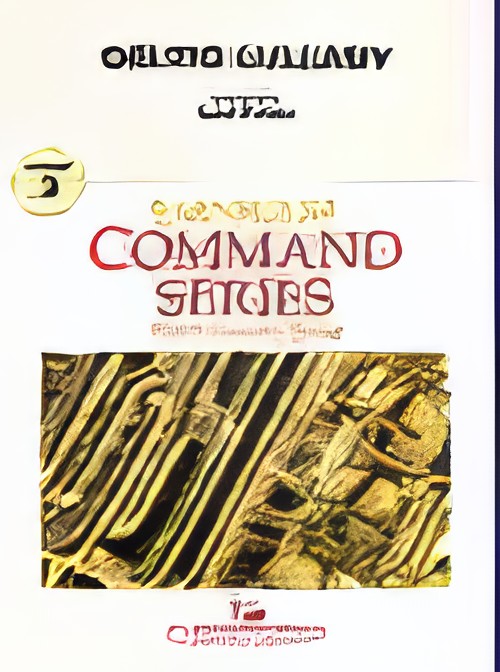Results
-
 £41.58
£41.58Bolero Africana
Based on three traditional folk tunes of African origins, "Kum Ba Yah," "Michael Row Your Boat Ashore," and "Amen," Ed Huckeby has created this unique program selection in the style of a bolero. Provides a great opportunity for your students and audiences to experience these familiar folk tunes in an entirely new setting.
Estimated dispatch 7-14 working days
-
£289.99
Bulgarian Dances (part II) (Concert Band - Score and Parts)
Bulgarian folk music has a long tradition and numerous typical characteristics, such as particular dissonances and complex, irregular rhythms. In Bulgarian Dances (Part II) (which can be performed together with the previously published title Bulgarian Dances) Franco Cesarini has preserved the original spirit of Bulgarian folk music, yet has imbued it with a symphonic character and brought it into the concert hall. The three different movements give us a meditative, moving folksong and a lively dance, before a distinctly symphonic part leads to a glittering finale. 18:15
Estimated dispatch 7-14 working days
-
 £169.95
£169.95Call of the Cossacks (Concert Band - Score and Parts) - Graham, Peter
Call of the Cossacks is part of the series of 'travelogue' features by Peter Graham, following in the footsteps of Cry of the Celts and Windows of the World. The Cossacks were a nomadic people whose ethnic makeup included Ukrainians, Tartars, Poles and Jews. A similarly wide range of Eastern European folk music features in this work, from Gypsy to Klezmer. Movement 1, Procession of the Tartars is cast in the old-style band 'patrol' and adapts a Klezmer folk song Fun Tashlach. The second movement, Doyle's Lament, is an original melody featuring solo alto saxophone while the final movement, Cossack Wedding Dance, is deep in Fiddler on the Roof territory - a pot pourri of Klezmer, Gypsy and Cossack styles. Each movement can be programmed separately.
Estimated dispatch 7-14 working days
-
 £44.55
£44.55Potomac Heritage (Concert Band - Score and Parts)
Featuring the same well-known folk song used by John Barnes Chance's in his Variations on a Korean Folk Song, here's a delightful piece that introduces some fascinating new sounds and textures to younger bands.
Estimated dispatch 7-14 working days
-
£454.99
Romanian Dances (complete edition) (Concert Band - Score and Parts)
Romania boasts an endless wealth of folk music and culture. Whilethe music of the north still sounds familiar to West-European ears,it becomes gradually faster and fierier towards the south. The sixmovements of Romanian Dances consist of various folk songs, whichthe composer collected and arranged, and represent a cross sectionof styles from dances with stomping and drumming to dancesassociated with prayer. Each movement can be performed separatelyensuring you will find something for all occasions. 30:00
Estimated dispatch 7-14 working days
-
£154.99
Romanian Dances I - Romanian Overture (Concert Band - Score and Parts)
Romania boasts an endless wealth of folk music and culture. Whilethe music of the north still sounds familiar to West-European ears,it becomes gradually faster and fierier towards the south. The sixmovements of Romanian Dances consist of various folk songs, whichthe composer collected and arranged, and represent a cross sectionof styles from dances with stomping and drumming to dancesassociated with prayer. Each movement can be performed separatelyensuring you will find something for all occasions. 08:45
Estimated dispatch 7-14 working days
-
£239.99
Romanian Dances II - Suite (Concert Band - Score and Parts)
Romania boasts an endless wealth of folk music and culture. Whilethe music of the north still sounds familiar to West-European ears,it becomes gradually faster and fierier towards the south. The sixmovements of Romanian Dances consist of various folk songs, whichthe composer collected and arranged, and represent a cross sectionof styles from dances with stomping and drumming to dancesassociated with prayer. Each movement can be performed separatelyensuring you will find something for all occasions. 16:30
Estimated dispatch 7-14 working days
-
 £70.00
£70.00SEA SONGS (Young Band) - Vaughan Williams, Ralph - Longfield, Robert
Originally the fourth movement of Vaughan Williams' well-known English Folk Song Suite, this setting of folk songs is now considered a separate work on its own. Here for the first time is an arrangement playable by younger bands. Including Princess Royal, Admiral Benbow and Portsmouth, all the original charm and character of the original has been authentically preserved in this outstanding setting by Robert Longfield.
Estimated dispatch 7-14 working days
-
£144.99
Suite Marchigiana (Concert Band - Score and Parts)
According to a famous statement by Herder, folk songs represent the archives of a nation's knowledge, the expression of its heart and theimage that reflects its history and identity. Suite Marchigiana is a three movement piece, inspired by folk songs from the Marche in central Italy, a region with a very ancient and rich folkloristic heritage. The first movement elaborates on the well-known Pasquella. The Pasquella comes from a traditional winter begging ritual where a group of musicians go from house to house singing verses, wishing their audience good health, wealth and abundance, in return for small amounts of money, food and wine. The second movement is an Andante Triste inspired by an old song called Sona la mezzanotte (The Clock Strikes Midnight), a melancholic song that reminds us of unhappy love stories, bereavement, and so on. Luciano Feliciani concludes the suite with the Saltarello Marchigiano, which is bright and sparkling, and therefore in complete contrast with the previous movement. Although unproven, the Saltarello is thought to have its origins in the 'saltatio' (a latin dance). While the choreae were group dances, circular in structure and with a rhythmic progression, the saltationes were more lively in character. The fast, frenetic and joyous saltarello was without any doubt the most famous musical expression of rural central Italy in the nineteenth century. 10:20
Estimated dispatch 7-14 working days
-
 £55.00
£55.00Celtic Lullaby (Concert Band - Score and Parts) - Phillips, Todd
Add an international flair to your next concert with this inspired piece based upon the old Irish folk song, "Carrickfergus," a town in Northern Ireland that has existed since medieval times. The folk song has been recorded by many artists including Charlotte Church, Joan Baez, Celtic Woman, Van Morrison, and 10,000 Maniacs. Performers will enjoy playing the lyrical melody as it moves throughout the band. A wide variety of percussion instruments will add to the Celtic flavor of the piece. A lovely melodic selection for any concert performance! Duration: 3.00
Estimated dispatch 7-14 working days
